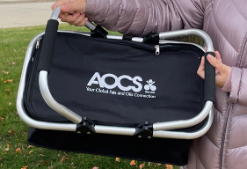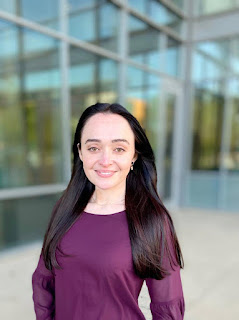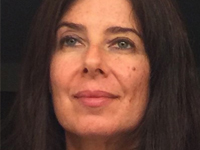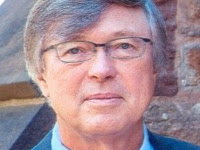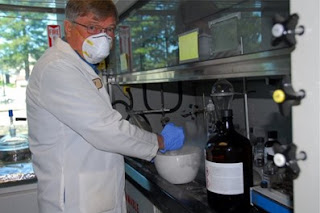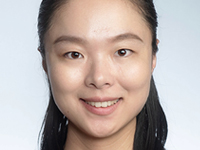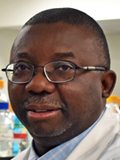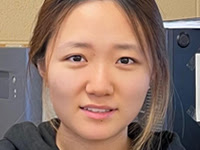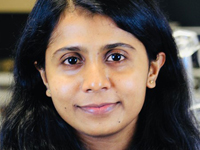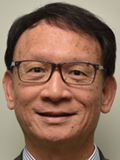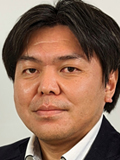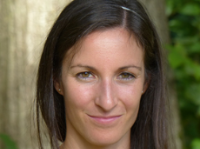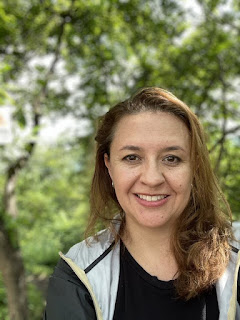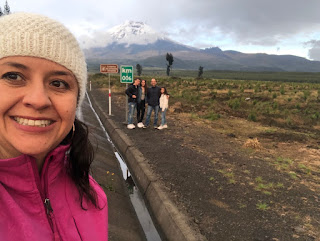Dr. Ximena Yepez is an associate professor at the Escuela Superior Politécnica del Litoral where she is currently serving as the director of the Plasma Lab. She teaches food analysis, carbohydrate and lipid analysis and supervises eight students on their respective research projects. Dr. Yepez enjoys collaboration on research, outreach and community service. She is very appreciative of AOCS and the great things the group has done for her as a professor.
Why did you join AOCS and how long have you been a member?
I joined AOCS in 2017 as a graduate student, during an annual meeting in Orlando, where I had the opportunity to present my Ph.D. work. I decided to join AOCS because I had a great experience finding relevant and updated resources to my research work: from methods of analysis all the way to highly specific topics about fats and oils, both through publications and a thriving networking research community. Ever since I joined, I have found great support and encouragement from my colleagues at AOCS.
How has your involvement with the AOCS influenced your career?
AOCS provides excellent support in the field of oils and fats, which was an important topic during my Ph.D. student career, and still is. Publications and events, such as the AOCS Annual Meeting & Expo, INFORM magazine, and the Professional Educator Common Interest Group are great resources that keep me updated on recent developments and state-of-the-art research in my fields of interest.
I also receive the Open Forum digest in the mail regularly, which I find particularly interesting, as it provides real problem-solution approaches, taken by experts in the field. I have even implemented some of these as case studies in my class, with great success and interest from the students.
Why did you decide to join the PE CIG?
I started teaching in my university three years ago, and I needed some support in the teaching aspect of my career. Also, due to COVID-19 restrictions, I have held meetings to share experiences and discuss the challenges of online teaching, particularly at the beginning of the pandemic when virtual and remote teaching were all new topics, and every educator was in need for guidance and support.
What led you to where you are now? Talk about previous jobs, school, other life journey that led you to where you are.
I worked in the food industry for 10 years before becoming a graduate student. Then in 2012, I had the opportunity to apply to a scholarship program that became available in Ecuador, providing funding for doctorate studies. Both my husband and I decided to apply, thinking that the worst-case scenario would be a rejection, which was just to continue our lives as they were. Eventually, we both got fellowships and admission to Purdue University. This was a life changing and defining moment. We turned from industry engineers into researchers in a top-notch institution; we became familiar with the research world, and now we are both professors at Escuela Superior Politécnica del Litoral (ESPOL) in Ecuador.
Our main goal now is to provide our students and research community with experiences of learning and research as interesting and excellent as the ones we had. Currently, I am the director of the Plasma Lab at ESPOL, where I supervise eight students in projects related with my fields of interest. I also participate actively in several international research groups, networks and collaborations.
What do you love most about your position?
I am passionate about materializing my ideas. Starting from writing proposals, continuing with training students and working towards a research question, and finally finding interesting results. I also enjoy greatly collaborating with colleagues in projects in areas as varied as research, outreach and community service.
I have been able to learn beyond my field and get the best from all my experiences so far. Although teaching was something new, I have grown to like it and enjoy it a lot. However, it has been challenging the past two years because of the pandemic. I’m really looking forward to returning to in-person classes, and to continue my involvement in other community service projects as well.
How do you define success?
That’s a good question. I believe success is a personal trait. There are no general rules to describe it. For me, success has a strong link to having a happy marriage and family, to do the job you enjoy and to work in something you are passionate about. Believe it or not, the latter are not that simple to achieve, particularly in my country, where work is very difficult to find as there are few opportunities. So, I am beyond happy with my definition of success.
Who inspires you? Or Who has been the most influential person in your career?
My husband has been the most influential person in my career. He had the dream of going to graduate school, and we embarked in this line of work thanks to him. During this journey, he has been there to help me become the best version of myself by pushing me to dream big. As a woman, sometimes it is more challenging to succeed in a career, and it has been an amazing support to have someone near me to make the path easier.
If you could give advice to young AOCS members, what would it be?
Find the time to become involved in a community of your field of work, such as AOCS, because it can give you the support that you need to succeed in a project, especially when you are stuck with lack of information. You may not only find what you need in an institution like AOCS, but you may also find a colleague working in a similar topic that can give you a hand. In my experience, I have come to understand the paramount importance that networking has in a research or industry sectors.
I also recommend participating in annual meetings and technical events, because it helps to expand your area of expertise and open your mind to new ideas or just different points of view, that may help you think outside of the box.
What’s something about you (a fun fact) that not many people know?
Wow! There is a lot of trivial stuff I can share.
Despite being a food scientist that must put attention to detail in my lab, I don’t like to use detailed recipes when cooking at home. Most of recipes (even fancy or difficult ones) are basically made by eyeballing ingredients.
Another fun fact about me is that despite working a lot with fish and seafood in my lab, I am not particularly fond of these foods. So, I manipulate fish on a regular basis for my research, but I don’t like them in my kitchen. And yes, I also love to cook.
What’s your favorite thing to do outside of work?
Travel. I love to travel in my country. I try to get away as much as time permits. Since my country has a very steady weather all year long, in any particular holiday or weekend, we take the car and drive either to the beach, the highlands, the Amazon rainforest, or at least to a small family farm. I am a very outdoorsy person.
